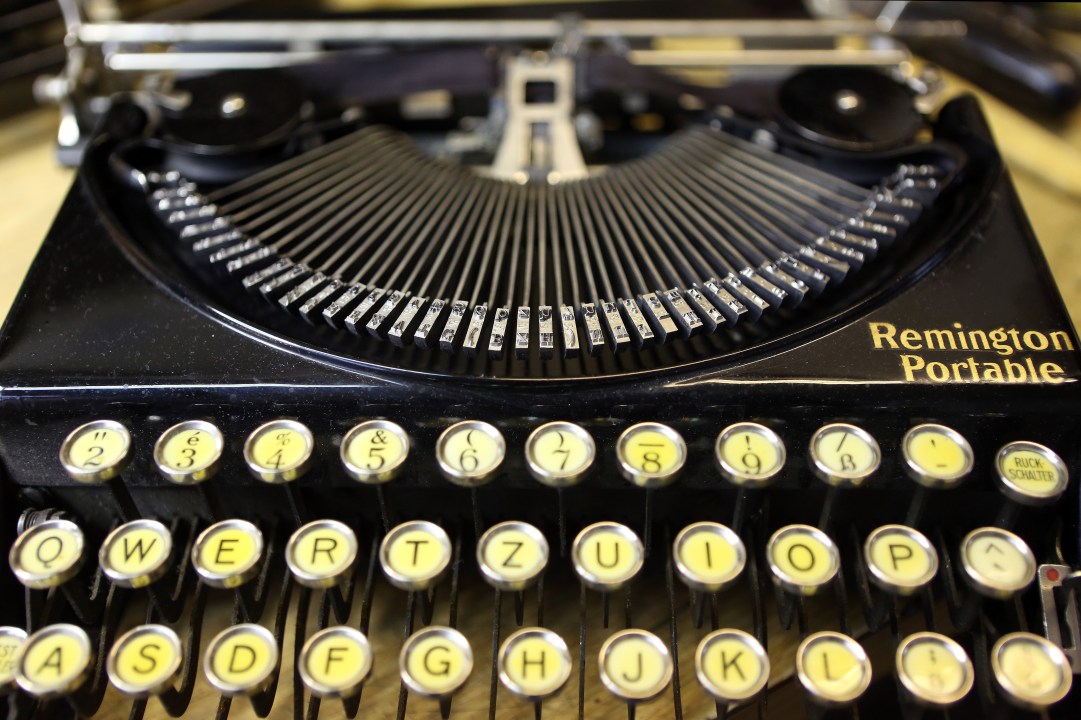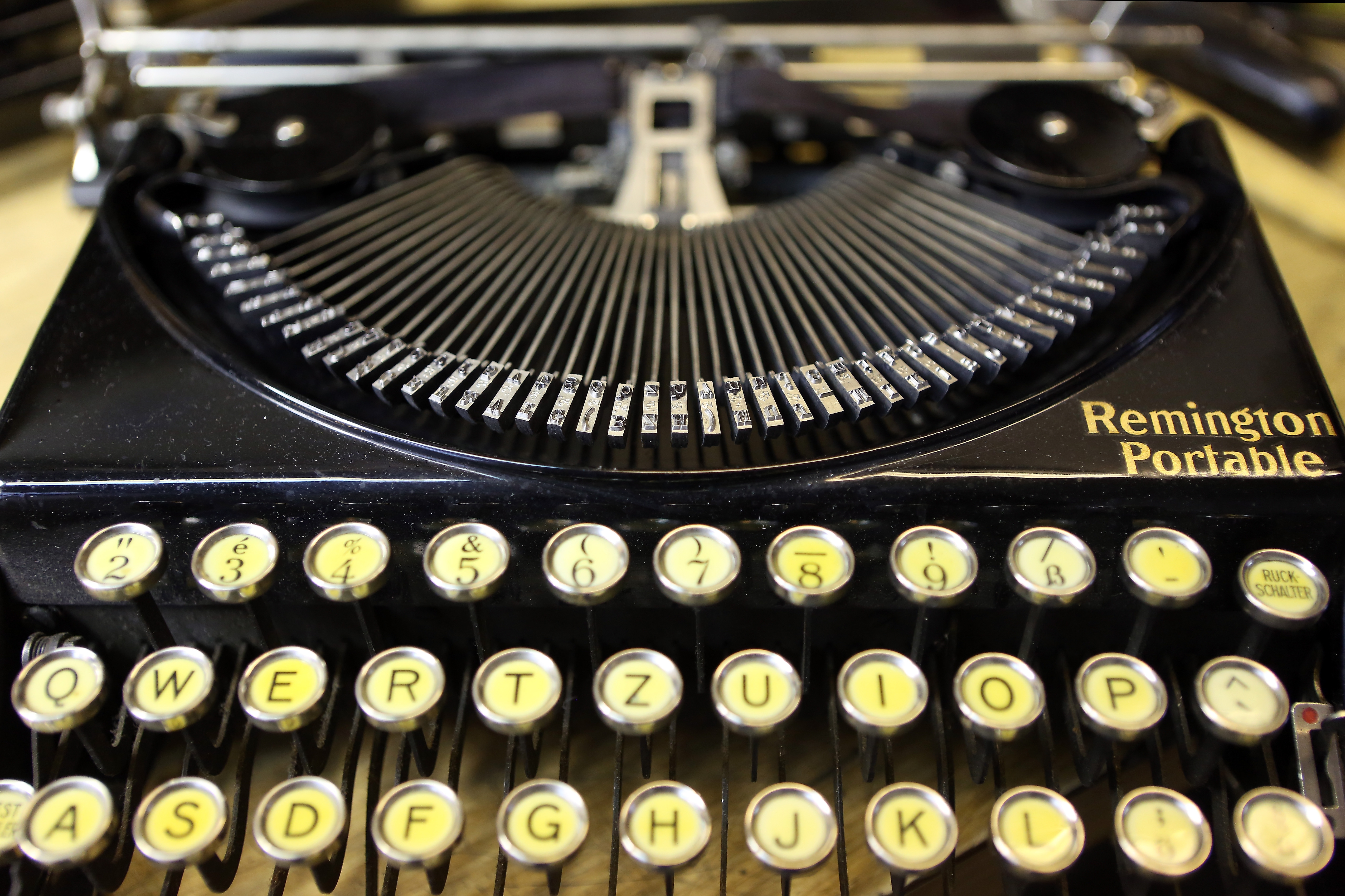There are many ways to commission fat-headed political analysis but, in my experience, by far the easiest is to ask a novelist his (or her) opinion on the great issues of the day. Better still, ask several. That way you can be sure you’ll get something even the student version of the Socialist Worker might think twice before publishing.
There are, of course, exceptions. Some of them quite close to home, in my view. Nevertheless (as Miss Spark so often said) the general rule applies: asking writers for their views on politics is no more useful or sensible than asking gravediggers or sheep shearers their opinion. It may be interesting; it is not likely to be valuable. Or, to put it more kindly, expertise in writing fiction does not necessarily translate into expertise in analysing politics. And why should it? They are different skills and there’s no reason to suppose novelists any less mental than the average zoomer chosen by lottery.
So I’m grateful to David Torrance for alerting me to this corking sampling of Scottish writers’ views on the whole independence stramash. Fairness demands one acknowledge that it’s not all barmy and not wholly self-indulgent or sentimental guff. Still, enough of it is for it to entertain.
Best of all is the contribution from Alan Warner which is not, I believe, meant to be read as a parody. According to Mr Warner, author of a number of good novels including Morvern Callar:
I fully support the yes campaign: a vote for increased democracy, a vote for the greater representation of a unique populace and a huge chance to break with the moribund, corrupt, militaristic lump that is Westminster today. The democratic dividends for Scotland have been kept well off the agenda by the big-business-led no campaign and its Nicodemite fellow travellers – a few of whom are writers. The no calculation is clear: what kind of future society we want in Scotland is NOT up for discussion; society has vanished and only cynical short-term “economics” and globalised agendas remain. The no “ideology” is numbingly small-minded, ahistorical and most of all, it is cowardly.
Good lord. Not just a difference of opinion then? Apparently not.
After the 1979 fiasco of the home rule referendum, many Scots like myself (I am half-English), felt cheated and disenfranchised. The vote was yes (by about 70,000); the infamous 40% rule was democratically questionable, as it converted abstainers and electoral roll anomalies into no votes. Then came Thatcher, Blair and the Cameronian; decades of rightwing monetarist rule from London.
There is some splendid question-begging here. Because Scots voted the ‘wrong’ way or, rather, failed to show sufficient enthusiasm for Mr Warner’s preferred outcome, the 1979 referendum was a fiasco. It’s no fair!
It might also be said that anyone who thinks there’s no difference at all between Thatcher, Blair and Cameron has forfeited the right to be taken seriously as a political analyst. If nothing else, their constitutional policies have proven rather different. But, hey, facts are tedious chiels.
What then are the implications for Scottish literature today? I am not self-important enough to believe it is part of many voters’ deliberations, but a yes vote would free us as Scottish writers from a hidden war that rages inside our minds; it would grant us the light wings of a new responsibility. A No vote will have sinister and depressing implications. Our literature has been and is still bound up with concepts of independence, cultural assertiveness, language and that quaint old term: freedom.
If we are aware of a hidden war is it really a hidden war? I am glad, however, that a Yes vote would grant light wings since the possibility of those wings being too heavy is worrying. I do wish, however, that Mr Warner had provided more detail about the sinister and depressing implications of people disagreeing with Mr Warner.
Then again, I am not sure that Scottish literature is quite as bound-up with the things he thinks it is but, to the extent it is, it might be thought plausible that these are the very things that make Scottish literature interesting and even, perhaps, worthwhile.
Think on this: if there was a no vote, has there ever been another European country where a “progressive” – and to use two pompous words – “intelligentsia”, has united in a liberation movement, yet the majority has finally voted against the aspirations of this movement? A no vote will create a profound and strange schism between the voters of Scotland and its literature; a new convulsion. It will be the death knell for the whole Scottish literature “project” – a crushing denial of an identity that writers have been meticulously accumulating, trying to maintain and refine. With a no vote, a savage division will suddenly exist between the values of most of our writing – past and present – and the majority of our people.
Titter ye not, ye people for you see you are part of the problem. In one sense it is quite reasonable for writers to despise the public. The public, after all, are tiresomely unconcerned with writers. There is already a divide, even a schism, between the public and their writers for the very good reason that the vast majority of the public care very little for most of the work published by most writers. This kind of rejection is awkward and, from a writer’s perspective, depressing but there you have it. The people, damn them, are unworthy.
In any case, there is no such thing as a ‘Scottish literature project‘ and it takes some gall, even some measure of arrogance, to think there is, let alone that you and your work might be part of it as though you spoke, or write, for the nation. But what about the values of most of our writing you ask? What about them indeed. Are, say, Scott and Buchan to be cast into the wilderness? What about Barrie and Spark and Kennaway and so many others one could name?
If you wanted to make Scotland seem a small, shrivelled, place you might want to insist that there’s only one form of authentically Scottish literature and that any deviation from this orthodoxy will be dismissed or somehow deserves to be excised from the canon. There’s more to Scottish literature – at least you damn well hope so – than the back-slapping arrogance of the unco guid.
Undaunted Mr Warner presses on, marching deeper into a jungle of madness.
Strong cultures endure, and if the vote is very close, some might find room for optimism. I won’t. Scotland will have become a mere global brand, its reality officially cancelled by its own people, and only approved by Westminster when sufficiently convenient, as a nuclear military base etc. Ultimately, Scotland will have voted Tory.
As satire, this is good stuff but, alas, I do not think it is meant as such. A No vote, you see, is a vote to eliminate or cancel Scotland. Ochone, ochone! (It goes without saying – except it must still be said – that being a Tory is obviously like being a rapist. Worse still, in this madness, we will have raped ourselves. Or something.)
I also confess to failing to understand how Scotland will have become a mere global brand and a reality officially cancelled. Since we are not, at present, an independent country does that mean we are nothing more than a global brand devoid of reality now? How does failing to change our constitutional status change who we are now? How, for that matter, can Westminster approve Scotland? God alone knows but I suppose it all makes some kind of sense deep inside a tin-foil lined bunker.
Ah well. Mr Warner concludes:
There is an 18th-century Scottish poem, by this guy, I can’t seem to quite recall; it’s all fading away. Something about “bought and sold … for … gold”? On our conscience it will rest.
This too is a grand and deep joke. It is just as well, then, that the Yes campaign does not pin its arguments on the proposition that voting for independence opens a path to greater – even near-unimaginably greater – prosperity.
Still, though it is easy and necessary to laugh at this nonsense there is still a sense in which Mr Warner’s ravings are valuable or at least instructive for they illuminate the ressentiment that lurks in the dark heart of one type of small-minded nationalist thinking. It is an emotion or sensibility as ugly as it is self-destructive and the kind of thing to leave one thinking that rather than dealing with the lawyers there is something to be said for shooting the writers first. Well, some of them anyway. (Not you Dad!)
There are many Scotlands and it is inconvenient they are not all alike. Some of us may feel this is the kind of thing that makes Scotland an interesting, if still all too self-obsessed, a kind of place. Always remember, however, that disagreement is dangerous and that voting the wrong way is worse than a mere moment of treachery.
With friends like these the independence movement has no need for enemies. So much so, in fact, that one wonders if Mr Warner is actually an undercover agent scribbling for Better Together.








Comments